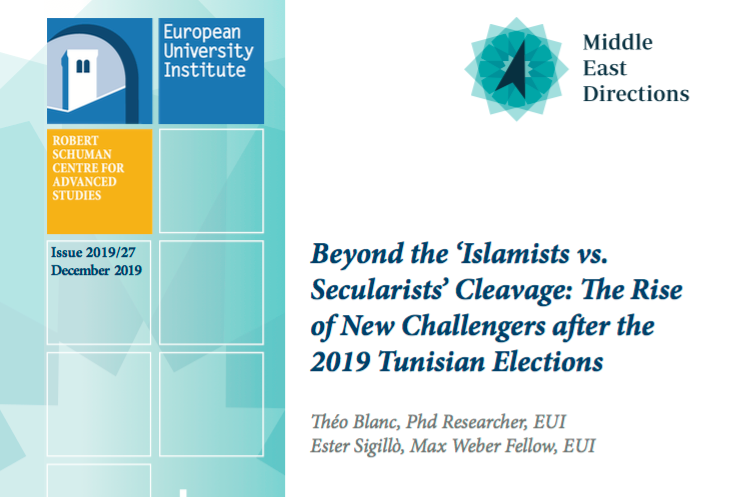The unexpected results of Tunisian legislative elections held in September and October 2019 reshuffled a highly contested political system and renewed a political elite accused of forgetting the claims and grievances raised by the 2011 revolution. Notably, popular discontent against Tunisian political elite grew in the wake of the inedited compromise between the Islamist party Ennahdha and the neo-bourghibist party Nidaa Tounès, which had faced each other in a crescent polarized landscape between 2012 and 2014.

While the success of the Tunisian democratic transition seemed to hinge on this “twin toleration” compromise between Islamists and Secularists (Stepan 2012; 2018) some scholars warned about the detrimental effects of a “rotten compromise” on Tunisian democracy (Marzouqi 2015; Boubekeur, 2016). Indeed, on the one hand, this compromise led to a fragmentation of secularist forces (Nidaa Tounès, Machrou’ Tounès, Tahya Tounès), on the other hand, Islamists, traditionally considered as a monolithic bloc, have suffered electoral losses and faced new challengers questioning Ennahdha’s alliance with the actors of the old regime. These dynamics have paved the way towards the 2019 electoral results, which have weakened the incumbent political parties. We argue that this transformation cannot be understood through the mainstream Islamists vs. Secularists cleavage, due to the emergence of new political entrepreneurs who do not fit with this binary interpretation of political processes.



